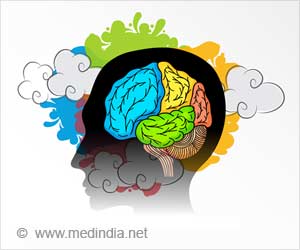Brain health depends on exercising the leg muscles, says a new study.
- Neurological health depends on the signals sent by the body's large, leg muscles to the brain.
- The experimental subject that had restricted hind limb movement for 28 days showed a decreased number of neural stem cells.
- The study could give clues to doctors about why patients with specific neurological disorders decline rapidly with reduced movement.
"Our study supports the notion that people who are unable to do load-bearing exercises -- such as patients who are bed-ridden, or even astronauts on extended travel -- not only lose muscle mass, but their body chemistry is altered at the cellular level and even their nervous system is adversely impacted," says Dr. Raffaella Adami from the Università degli Studi di Milano, Italy.
Study – How does leg movement affect Brain Health?
Researchers conducted experiments with two sets of mice – the mice in set one were allowed to use only their front legs and were restricted from using their hind legs for a period of 28 days. The mice in set two were the control mice which were allowed to roam. During the trial, the mice in both sets continued to eat and groom normally and did not exhibit stress.The researchers also studied individual cells to see the impact of reduced exercise at a cellular level.
Results at the end of the trial
- There was a decrease in the number of neural stem cells by 70 percent in the sub-ventricular zone in the test mice, compared to the control group mice. The sub-ventricular area is where the stem cells produce new nerve cells or neurons and is a region important in many mammals for maintaining nerve cell health.
- Limiting physical activity caused neurons and specialized cells called oligodendrocytes that support and insulate nerve cells to mature incompletely.
- When analyzing individual cells, the researchers found that cutting down on exercise reduced the amount of oxygen in the body, which in turn could alter metabolism. It also impacted two genes. One of the genes called CDK5Rap1 that was affected is very important for mitochondrial health. The mitochondria as we all know is the powerhouse of the cells that are essential for producing and releasing the energy needed by the body.
Significance of the results
The study shows that exercising the legs, especially in weight-bearing exercise, sends messages across to the brain to produce healthy neural cells. Nerve cells are the building blocks of the brain and nervous system and allow us to handle stress and adapt to challenge in our lives.Hence, reducing exercise could cause an opposite effect and make it difficult for the body to produce new nerve cells.
"It is no accident that we are meant to be active: to walk, run, crouch to sit, and use our leg muscles to lift things," says Adami. "Neurological health is not a one-way street with the brain telling the muscles 'lift,' 'walk,' and so on."
It now seems clear that leg movement has a critical role to play, and the lack of it could have several health impacts – some known ones like cardio-vascular impacts as a result of sedentary lifestyles, to some others that are yet to be studied, like health issues that occur due to lack of gravity and load-bearing exercise when astronauts are sent into space for months or even years, say the researchers.
We can conclude by saying that reduced exercise is a critical factor that exacerbates neurological diseases and the current study fundamentally alters brain and nervous system medicine.
"One could say our health is grounded on Earth in ways we are just beginning to understand," concludes co-author Dr. Daniele Bottai, also from the Università degli Studi di Milano.
Neurological Disorders
Neurological disorders affect the central and peripheral nervous system, which comprises the brain, spinal cord, cranial nerves, peripheral nerves, nerve roots, autonomic nervous system, neuromuscular junction, and muscles.These disorders include epilepsy, Alzheimer disease and other dementias, stroke, migraine, multiple sclerosis, Parkinson's disease, neuroinfections, brain tumors, and traumatic disorders of the nervous system due to head trauma. Many bacterial, viral, fungal, and parasitic infections can affect the nervous system.
The global burden of neurological disorders is high. Globally, more than 6 million people die due to stroke each year, more than 50 million people have epilepsy, an estimated 47.5 million people live with dementia (Alzheimer's disease contributes to 60–70% of cases), and the prevalence of migraine is more than 10% worldwide.
References:
- Leg exercise is critical to brain and nervous system health - (https://www.eurekalert.org/emb_releases/2018-05/f-lei051718.php)
- What are neurological disorders? - (http://www.who.int/features/qa/55/en/)
Source-Medindia













